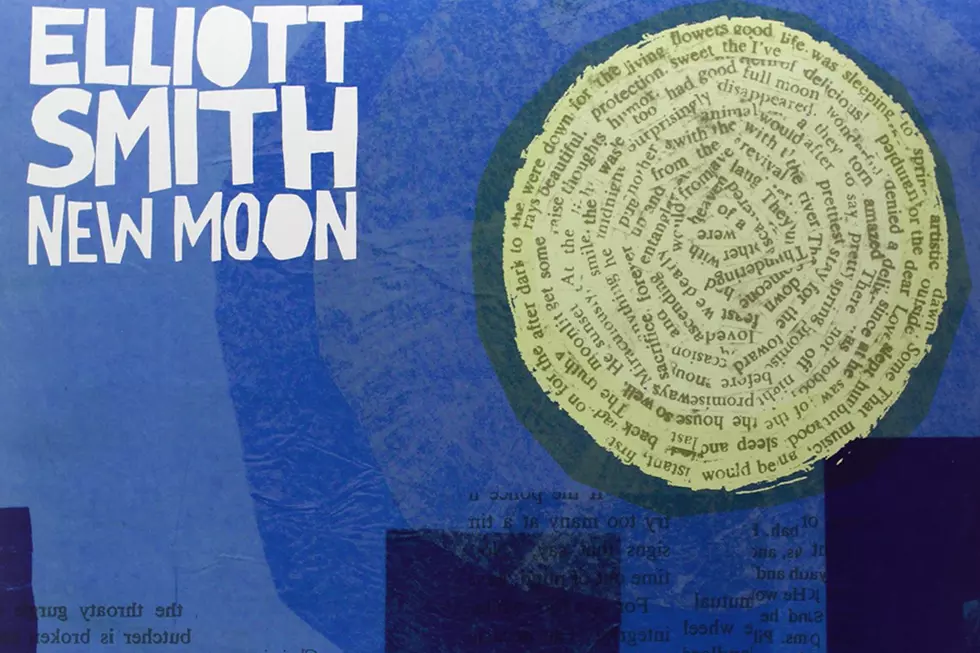
‘Heaven Adores You’ — A Difficult Film on Elliott Smith
Director Nickolas Rossi's Elliott Smith documentary, Heaven Adores You, is a difficult film to pin down. Adjectives like "intimate" and "meditative" seem trite; "celebration" feels wrong. The film is all of these things and none of them, existing in a sort of non-committal ether.
A big part of the problem lies with the viewer, who can't help but bring his or her own baggage to the film. Perhaps you'll arrive at the theater intent on seeing a portrait of the gentle soul singing "Miss Misery" from the Oscar stage circa 1998, or maybe you want the tortured figure who died tragically five years later. Maybe Montage of Heck is still stuck in your mind's cache, eager to tease a "tortured genius" parallel from the two films.
The latter is particularly problematic for me thanks to the coincidental similarities of the two films' subjects. Both Kurt Cobain and Smith are closely associated with the Pacific Northwest, both experienced difficult upbringings, punk rock roots, addiction and contentious relationships with fame. Even the wide release dates of the two documentaries dictate some amount of comparison, with Heaven Adores You hitting theaters just days after Montage of Heck's debut.
That's about it for similarities. In terms of storytelling, the two films couldn't be any different. Montage of Heck is noisy both visually and aurally, an insistent barrage of Cobain doodles and journal pages shoved toward the camera with a "Recognize his genius!" insistence. On the other hand, Heaven Adores You is barely a whisper, its visual sensibility rooted more in establishing shots of cityscapes than evidence of its subject's genius.
I'm the wrong kind of person to be really big and famous.
As for said genius, the film's many interviewees essentially brush past it as if it were a given, no convincing necessary. Not so for Smith himself, who only a minute into the film is shown in archival footage quietly saying, "I'm the wrong kind of person to be really big and famous."
The film's origins help to explain a bit of its disjointed structure. Director Rossi was living in Portland during the period that Smith was the town's shining star. Rossi describes Smith's music as "the soundtrack to my time in the Pacific Northwest," and perhaps that's why he traveled to Los Angeles after the singer's death to film the makeshift fan memorial that cropped up outside of Solutions Audio. Rossi's YouTube video garnered quite a few hits, motivating the director to launch the Kickstarter campaign that became Heaven Adores You. Footage of the memorial appears throughout the film like remnants of a short story that was stretched into a novel.
That's all fine and good, but by introducing these twin themes early -- Smith's death and that he wasn't fit for fame -- Rossi is creating something of a contract with the viewer: This is what my film is about. To some extent he holds to his thesis statement, but he doesn't commit. It's like Rossi is caught between a fan's desire to create a tribute and a director's need to tell a story -- the former consistently smoothing away Smith's rough edges that are so essential to the latter.
That problem arises fairly early. Half sister Ashley Welch and childhood friend Steve "Pickle" Pickering discuss Smith's early life in Texas and his first band (with Pickering). We learn that he was finger picking and writing songs as early as age 13, and then he's off to Portland with virtually no explanation. Smith appears throughout the film via an interview with KCRW's Morning Becomes Eclectic, and his explanation to that show that he "just kind of moved up there when [he] was a kid" is left hanging in the wind without question.
Welch concedes that Smith and her father (Smith's stepfather), Charlie Welch, didn't get along, but leave the film's boundaries for more detail and one finds suggestions that Welch abused the boy. "Charlie beat you up week after week, and when you grow up you're gonna be a freak," Smith sings in "Some Song."
It's a maddening omission, even more so given that Smith's music is used throughout the film. Was Rossi concerned about offending the Welch family, or perhaps threatened with legal action? Regardless, without motivation, a junior high-aged Elliott Smith taking off for Portland makes little to no sense. (The filmmaker doesn't explain that Smith's biological father, Gary Smith, lived in Portland.) We're left with an incomplete portrait that suggests a young boy striking out on his own to parts unknown.
On the plus side, the Portland section is where Rossi's film really shines. Through interviews with Smith friends and band mates, we get not only a portrait of the young musician but of the Portland music scene. We see the punk rock side of Smith as he finds himself with early bands Stranger Than Fiction and Murder of Crows. He battles through his "Joe Strummer with a cold" period and finds the voice that we all know. It seems like a pretty good time in Smith's life.
His years at Hampshire College in Massachusetts are glossed over with brief comments from Jackpot! Studios owner Larry Crane about Smith's summer musical projects in Portland. Perhaps Hampshire isn't relevant to Smith's narrative, I don't know, but one would be forgiven for wondering what happened during that chunk of time. Again, the information is readily available to anyone willing to do a little homework outside of the confines of the film, so it's not so much a problem of lack of information as it is another jarring "Wait, what? Why aren't you telling me about that?" moment in the film.
The most compelling moment of the Portland segment deals with Smith's post-college band, Heatmiser. The band enjoyed significant success, releasing three albums on Frontier Records and another one for Virgin imprint Caroline, but the songwriter was drifting away from the more muscular rock sound of Heatmiser and toward the sound with which we're familiar. "Everything was just as loud as I could possibly do it," Smith says. "I can't listen to those records now."
From there we see the growth of Smith as local singer-songwriter hero, captivating crowds wherever he goes. The effect is a bit like watching the Zapruder film, the smiles and waves so uncomfortable when we know how the story ends.
Smith's relationship with Joanna Bolme is another moment where critical bits of biography seem to be glossed over with a Seinfeldian yada yada yada. Larry Crane notes that "Say Yes" is "probably the most personal song he ever wrote because we can pretty much tell you that's Joanna" ... but who is Joanna?
Rather than at the very least letting the lyrics tell the story, the director leaves us with bits and pieces of how influential Bolme was on Smith and a cryptic (if one doesn't know the song) quote from Bolme: "I wish the circumstances under which it was delivered were a bit more ideal."
As Smith's life becomes complicated with drug abuse and other issues, Rossi skips ever more shallowly across the surface. The fan seems to win over the director during the New York and Los Angeles sections of the film, refusing to flesh out the details necessary to fulfill that contract he agreed to in the first three minutes of the movie.
Remarkably, as critical as all of this sounds, Heaven Adores You is a must see for any fan of Elliott Smith. The abundance of photographs, audio outtakes and interviews more than compensate for the film's narrative shortcomings. If anything, they're a part of the movie's charm. Like one of Smith's songs, the movie feels like an unfinished sketch, inviting the viewer to draw the last few lines as he or she see fit.
More From Diffuser.fm









